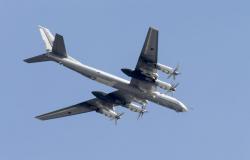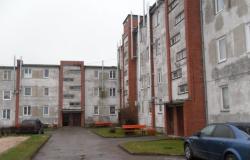In Strasbourg, many emphasized that Europe finally began to breathe the air of freedom with both lungs – western and also eastern. Since then, only three countries have joined the ranks of the EU, which further demonstrates the uniqueness of the 2004 enlargement.
Singing is rare in the European Parliament. And this was one of those rare times. The European anthem was dedicated to the 10 member states that joined the EU on May 1, 2004 – and young people born on this historic May 1 were in the place of honor together with the leaders of the countries of that time and could question them.
It was an unprecedented experience for a 1st-year student from the Rēzekne Academy of Technology – talking with the president of Latvia at the time in the middle of the huge plenary hall.
“So many important people around, and such an event and also that there are so few chosen ones who have such an opportunity to participate – so a little yes, to be honest, I felt like a star,” Elias said.
The then President of the European Parliament (2002-2004), Patrick Cox, said that enlargement had brought benefits to Europe as a whole and should continue.
“Of course there have been problems, but at the end of the day we know that enlargement has been very successful in its essence. It has brought more prosperity and more solidarity and a sense of belonging. Before, people feel left out because history separated Eastern Europe from the European Union. The will of the people that was expressed in the referendums opened the door and brought them back together. I think it is possible and desirable to do it again,” said Cox.
The president of the European Commission (EC) at that time, Romano Prodi, also pointed out an interesting connection – both the parliament and the commission are currently headed by women. One comes from Germany, the largest country in the EU, and it is the head of the European Commission, Ursula von der Leyen, while the other comes from the smallest country, Malta, and it is the president of the European Parliament, Roberta Metsol. And it also shows that the EU gives more opportunities to small countries and their people than staying outside.
Vīke-Freiberga on Latvia’s 20 years in the European Union: Without joining the EU, we would still be in the zone of Russian influence
The former President of Latvia Vaira Vīķe-Freiberga also came to Strasbourg. In a conversation with Latvijas Radio, she stated that without joining the European Union, Latvia would still be in the zone of Russian influence.
“Then we would be like Moldova, where fate hangs in the balance and which can be expected every day to have a Russian-backed coup. If not exactly an invasion, then at least an organized takeover from Transnistria. We would be in a complete sphere of Russian influence – catastrophically abandoned on the outskirts of Europe, not as part of this union,” said Vīke-Freiberga.
Although the EU has provided Latvia with security and financial support in the implementation of various projects, some of the opportunities offered by it have still not been used, and the former State President assessed this critically.
“The fact that we have not used all the opportunities that EU membership has given us is, in my opinion, the biggest criticism that I have for the Latvian people and the administrative system, and for the politicians who have been active for the past 20 years. We hear again and again, that large funds are available, but we need projects that meet European requirements, and we don’t have those projects ready,” she said.
Latvia received the invitation to start accession negotiations for membership in the European Union in 1999 at the Helsinki EU Council, but on December 13, 2002, during the Copenhagen meeting of the EU Council, Latvia together with 9 other countries officially completed accession negotiations to the EU.
The agreement on Latvia’s accession to the EU was signed on April 16, 2003 in Athens, but it became a member state on May 1, 2004.
On this day, Cyprus, the Czech Republic, Estonia, Lithuania, Hungary, Malta, Poland, Slovakia and Slovenia also became full members of the EU.
While the Baltic states hope that Ukraine will join the EU, there are those among the member states that do not want to open the door to Ukraine. Here, Hungary and Hungarian Prime Minister Orbán’s efforts to block any support for Ukraine have proven to be a thorn in the side of European unity. This has sometimes led others to quietly wish for Hungary to leave the EU.
“Hungary is a good friend of Latvia, we work together in economy and culture. I do not believe that the people of Latvia would like Hungary to withdraw from the European Union. Hungarians do not want to withdraw from the European Union,” said former Prime Minister of Hungary Pēters Medģeši.
The uneasy charm of being together is just one of the challenges the EU faces when it experiences crises – be it asylum seekers, Covid or war. But the first 20 years have allowed life together in the future to mature.






